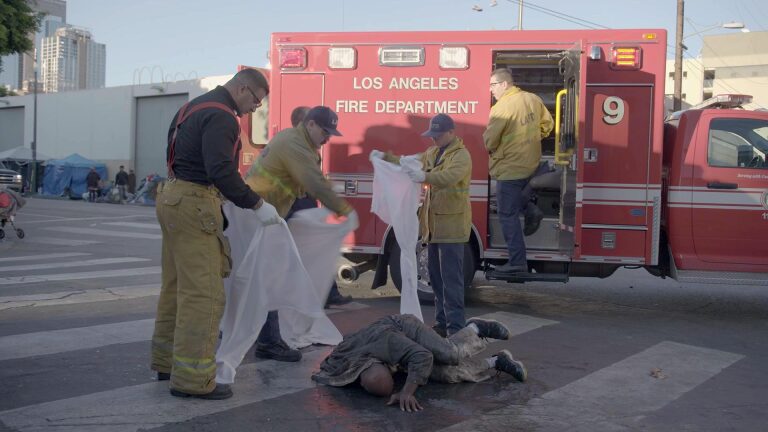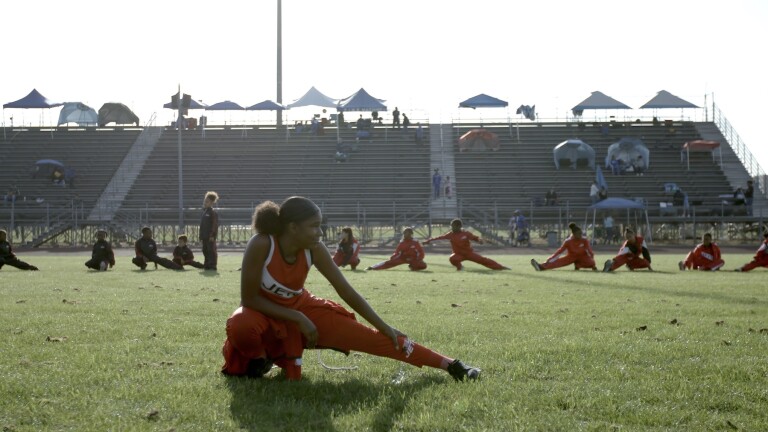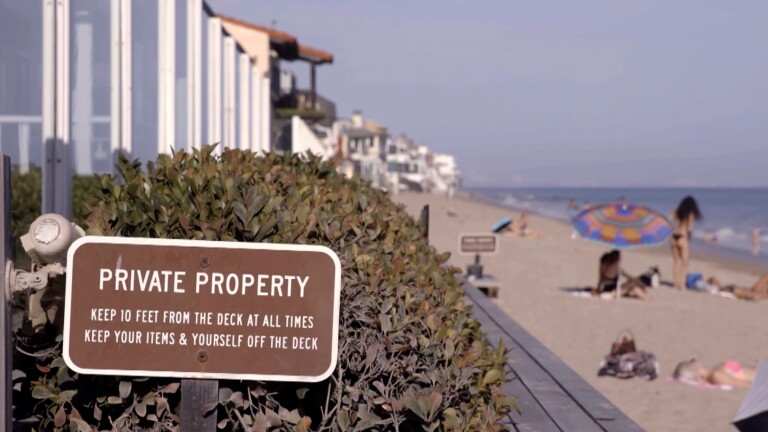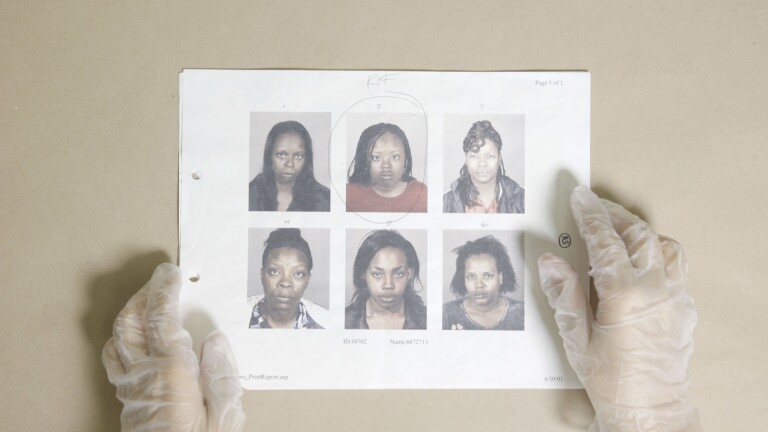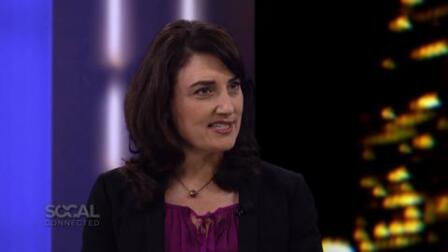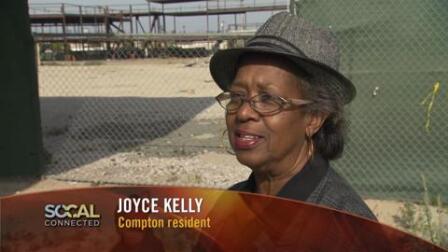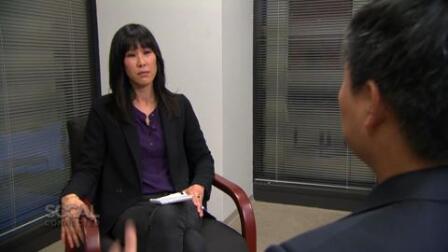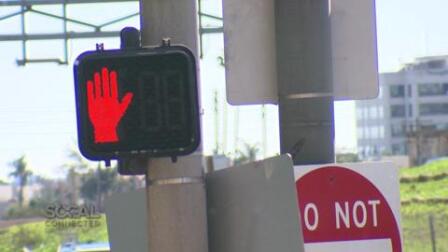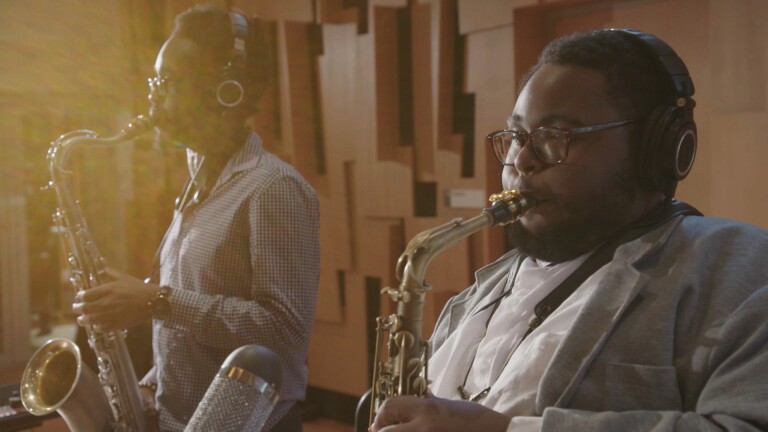
Up Next
Massage Parlor Boom Raises Concerns of Illicit Activity
In case you haven't noticed, massage parlors are springing up all over Southern California, maybe even in your neighborhood. They seem to be everywhere -- from Simi Valley to Beverly Hills. Huntington Beach has seen a 600 percent increase in just three years. Some blame a new state law for rules that allow this growing industry to regulate itself. As anchor Val Zavala found out, some of these parlors offer more than just a massage.
TRANSCRIPT:
Officer: Okay, do a check. Make sure everyone is set up.
Val Zavala/Reporter: It's 1 p.m. inside an undercover van parked at a strip mall in Huntington Beach. Surveillance is being done, and the team is waiting for the call.
Officer [on radio]: Making contact.
Zavala: And then it's go time. Just seconds later, they are inside at the scene of the crime.
Officer: Is there anything illegal here -- guns, drugs?
Zavala: No bullets, blood, or bodies, at least no dead ones. The cops gather evidence and take pictures. The cuffs come out, and suspects are interrogated and written up.
Officer: Two-point-three-zero, subsection D, David.
Zavala: Then they're walked out and hauled off to jail. The city known internationally as the birthplace of surfing is now awash in happy endings.
Chief Ken Small/Huntington Beach Police Department: If you travel through our city, you will notice that almost every corner has a massage parlor on it, and often massage parlors mid-block.
Zavala: Huntington Beach Police Chief Ken Small is struggling with a massage parlor explosion.
Small: We've gone from nine to 65 massage parlors in the city.
Zavala: The recent raids targeted some of the parlors. Thirty officers from various agencies, including the Orange County Human Trafficking Task Force, spent the day and night participating in the sting. This was the last raid, a small parlor in the center of town. By day's end, 50 violations were written, 10 arrests were made -- four for prostitution. Ten massage businesses were inspected, and police shut them down, but not for long.
Zavala [to officer]: Could any of these places be open tomorrow for business?
Officer: They will be open tomorrow. Guarantee you they will.
Zavala: So will the other 55 massage parlors operating in Huntington Beach. The city has seen a 600 percent increase in the number of massage establishments in just the past three years.
Small: In terms of priorities of things that you do in the police department, this is important, but it's not the highest priority thing that we do. So we can't take people out of patrol cars and have them inspecting massage parlors.
Zavala: But Huntington Beach is not alone. A hundred miles up the coast, Ventura is also trying to get a handle on their massage parlor tsunami. So is Simi Valley and Thousand Oaks, and in Eagle Rock.
Michael Nogueria/Eagle Rock Businessowner: Well, my neighbor next door popped in about a couple of years ago.
Zavala: Business owner and resident Michael Nogueria has a new neighbor: the Rose Garden Spa. It's one of 24 massage parlors that call Eagle Rock home.
Nogueria: I counted close to about a dozen, up to this point. Now, if you go down south, down Eagle Rock Boulevard, you're gonna count -- and they're discreet about it, you'll see there's signs -- and there's another 10 to 11 more.
Zavala: Massage parlors!
Nogueria: Massage parlors.
Zavala: And here's a stunner -- it's even a problem in Beverly Hills.
Meryl Rossetti/Beverly Hills resident: We want you out of here. We don't want you in our neighborhoods. You do not belong here!
Neighbor: No, no, no!
Rossetti: Yes, yes, yes, yes, yes! Get out!
Zavala: Beverly Hills resident Meryl Rossetti doesn't need a stars map to spot this massage parlor. It's right next door to her home. Police have raided it and made at least one bust for prostitution, but it's still in business.
Rossetti: And it's very frustrating because, you know, these people are disgusting people, and they are bringing in disgusting people into my neighborhood. And I have to live here. And if I wanted to sell my home, which I don't, the value is now -- I have to disclose there are prostitutes.
Zavala: Is that right?
Rossetti: Oh yeah!
Zavala: She says complaints to the city and police have gone nowhere. Frustrated, Meryl took to the streets and starred in her own one-woman protest, which quickly grew to three. She wanted nearby temple visitors to know she thinks there's a house of prostitution next door to their house of worship.
Rossetti [to passers-by]: It's a garage apartment. Would you like a flyer? Did you know there's a place of prostitution around here?
Zavala: From the streets of Beverly Hills to the strip malls of Huntington Beach, it seems like massage parlors have gone wild, and many are pointing fingers at Sacramento.
Small: We've absolutely had our power taken away based on my dealings with the Massage Therapy Council.
Zavala: The California Massage Therapy Council is a nonprofit. It was created in 2009 by state law aimed at regulating therapists. Before the law, cities and counties issued permits to therapists. But now, the council's in charge. The council has issued 50,000 certificates and does criminal and educational background checks before issuing those certificates. It's a voluntary program, but membership has its privileges. They can work anywhere they want without having to get local permits. And that's not sitting well with the LAPD Northeast Vice Squad, who recently spoke at the Eagle Rock Community meeting.
Detective Mike Valdez/LAPD: See, that's the thing with the state license, too. It's that they are mobile. So, each individual is like a mini-massage parlor on wheels, so you can just start -- you can open a place out in the Wilshire District and just bring in three, four girls, and you've got yourself a massage parlor. The business itself does not need the permit any longer. That is what the state's done to us.
Zavala: Ahmos Netanal is the head of the California Massage Therapy Council.
Netanal: But it's very important to understand that there is a distinction, and that is between illicit massage parlors, which are illegal, and there is a difference between professional, honorable massage therapists who meet the rigorous standards.
Zavala: Netanal argues massage therapist businesses should be treated just like law firms and doctor's offices and not like liquor stores and smoke shops.
Netanal: They need to be zoned in the same way that the city zones other professions, like a state licensed aesthetician, a state licensed occupational therapist, an accountant.
Small: In practice, none of these businesses operated like an accountant or any of the other businesses he mentioned, and I don't think they should be treated the same way.
Zavala: But they are, thanks to that 2009 state law. And it did something else: it took away cities' and counties' right to put a cap on the number of massage parlors. And there is no limit, as long as the businesses only hire council-certified therapists. That's something Huntington Beach learned last year when it was about to pass a law limiting the number of parlors to 30, but then the city heard from Ahmos Netanal.
Small: The first contact we got was a threat to sue us, and then they flew to Huntington Beach, and after their threats to sue us, we pulled that item from the city council agenda.
Netanal: That's not true. What we did was we contacted them, and we made sure that they were aware of the fact that what they were about to introduce was not congruent with the state law.
Zavala: Huntington Beach backed down, but in Eagle Rock recently, residents turned up the heat on Netanal, blaming his council and the 2009 law for the surge in illicit parlors in their neighborhood.
Resident [to Netanal]: Because of your organization, the standards that we have, municipalities are no longer allowed to manage these businesses we now have. As he said, 80 percent of massage parlors in this neighborhood are illicit. Do you acknowledge that correlation?
Netanal: I've been a resident of the City of L.A. for 30 years, so I'm very much aware of what is happening.
Zavala: Netanal says he's working with law enforcement and communities to get rid what he calls the "bad apples."
Netanal: Anytime somebody gets arrested, we get notified on a daily basis. If somebody gets certified through CMTC, that person gets arrested, the next day, we are being notified by the Department of Justice and FBI. And if that is the case and indeed the person is engaging in unprofessional conduct, they will get denied.
Zavala: But we found that may not always happen. Two of the women arrested for prostitution in the Huntington Beach raid were state certified according to the vice squad. Three weeks after their arrests, we found they were still active on the council's website. It's all been frustrating for law enforcement, and that's why the LAPD Vice Squad is trying something new. They are putting landlords on notice: stop the illegal activity or lose your property.
Valdez: Whoever is left standing, whoever's decided to not take the warning, at that point we'll start the abatement process, and that means that the property gets taken away.
Zavala: Huntington Beach is also considering new ordinances, and in Sacramento, the 2009 massage law is set to expire next year if the Assembly doesn't renew it. Until that happens, Michael and Meryl's neighbors are probably here to stay.

